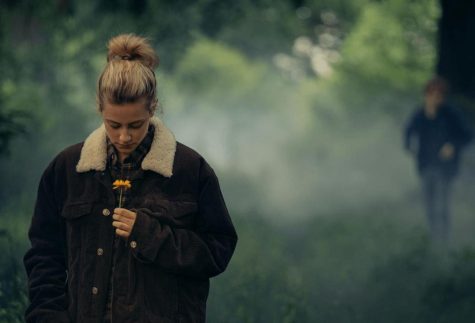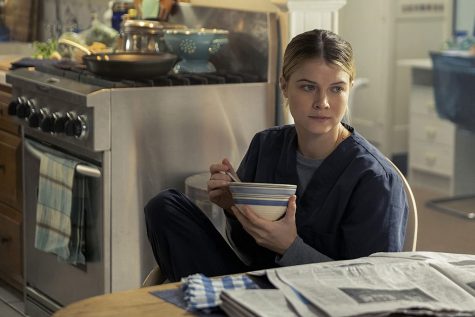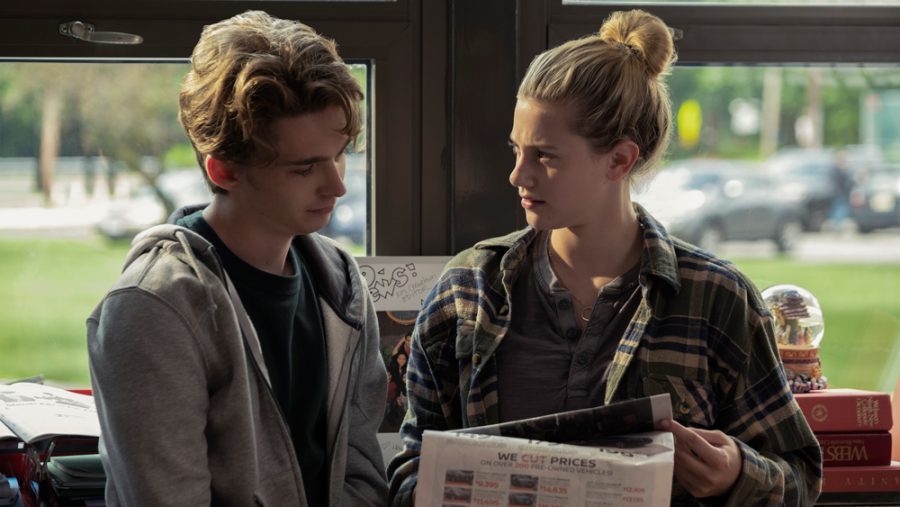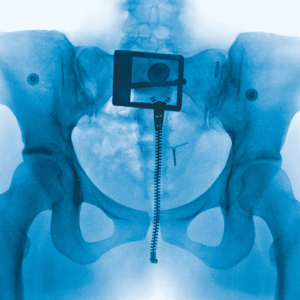REVIEW: “Chemical Hearts,” mediocre teen angst
If you have blown through your quarantine watchlist and you are looking for something new, you may or may not want to pick the new Amazon original film “Chemical Hearts.” Pulled out of the overdone genre of 2000s teenage angst flicks, the only new things “Chemical Hearts” did for audiences today was to recruit experienced teenage players Lili Reinhart from “Riverdale” and Austin Abrams from “Euphoria.”
What follows is a mediocre love story of two teenagers somehow fully aware of how confusingly misguided their actions are but still doing them anyway.
Abrams’ character Henry is a high school student that is looking for excitement and ways to make the most of his time without a fully developed brain. He becomes co-editor-in-chief of his school’s newspaper, along with transfer student Grace, played by Reinhart. Grace is jaded, walks with a cane due to an injury and refuses to write for the paper. Their relationship starts when Henry misses his bus and asks for a ride home from his new coworker. Because she doesn’t like driving (foreshadowing alert), she lets Henry drive her car, and then she walks home. Very chivalrous, this Henry. They end up in an incredibly messy relationship, chalking it all up to chemical imbalances in the brain and the woes of being young. It’s angst city.

The audience spends the entire hour and a half movie trying to figure out the mysteries behind Grace, her injury, and who keeps picking up her car from Henry’s house. I won’t spoil any of that for you, but it is a situation that a real teenage boy would back away from.
But we’re in a teenage romance and that means we need to lean on fake teenagers behaving as if true love conquers all. We may just be a collection of atoms producing chemicals that we label emotions, but we should most definitely act on these chemicals that will push us into the deep end of another person’s tragedies. It seems like this film is saying to the audience that yes, these characters know they are making mistakes, yet the mistakes are worth making for teenage love. Realistically, they lack any foresight and experience needed to tell them when they are in over their heads, sending them on to make decisions they think they can handle.
“Chemical Hearts” had the potential to break out of the constraints of an overdone and bygone teen angst genre. A way the movie could have done that was to explore grief more, instead of passing it by. Henry’s parents (Bruce Altman and Meg Gibson) are the perfect couple—in love, married for years—a family structure that today seems to be in the minority. However, Henry’s sister, played by the underused Sarah Jones (“For All Mankind”), is grieving her husband that recently left her. In one scene, she cries to her clueless younger brother about the loss, but we don’t really see how Henry is affected by this or his family’s relationship with him. The film assumes we know that Henry is influenced by these things, but does not delve deep enough into the reality of the situation to build that narrative. It also doesn’t get adequate screen time, and instead, time is devoted to artsy transitions and more shots of the attractive leads. The same things can be said about Grace’s family and living situation, but to reveal their specificities would spoil the film.

The film does depict a lesbian relationship between two women of color, something that films 15 years ago typically shied away from. But like Henry’s family, their story gets pushed to the sidelines and does not get the screen time to really make an impact.
This film also has a romanticizing problem. Some of the most uncomfortable and concerning scenes are unrealistically set in aesthetically designed spaces, one even taking place in a brightly lit abandoned warehouse with a beautiful koi pond that Grace wades through like a goddess. These things make it hard for the audience to focus on the very serious mental issues Grace experiences, and instead on how beautiful she looks when she sheds her flowing white dress into the water, symbolizing her rebirth. In an age that has become more accepting and aware of the seriousness of mental health, this 2020 film can’t pull off angst by romanticizing grief like the past films it tries to emulate.
The movie ends in an unexpected manner that surprisingly puts effort into respecting the gravity of mental health conditions. While the movie has some issues portraying reality, it does not completely gloss over the need for help that these characters exhibit. Henry and Grace end up doing something wise, another unrealistic thing to expect out of people their age. One of the best scenes happens at this moment. If only the rest of the film could have been like that, this movie might have had a chance at making an impact.













Connor • Aug 31, 2020 at 3:56 pm
I think you really missed the mark here. Vehemently disagree. The movie was beautiful. The pain was very real. Not often do you find a movie as poetic as this one. It also a little concerning that you can’t separate a beautiful girl in a beautiful but dingy pond from the very real emotional breakdown she’s portraying on the screen. Also you really underestimate the teenagers of today.